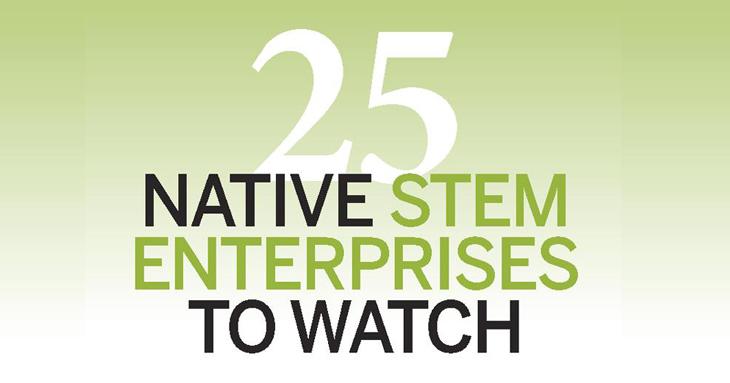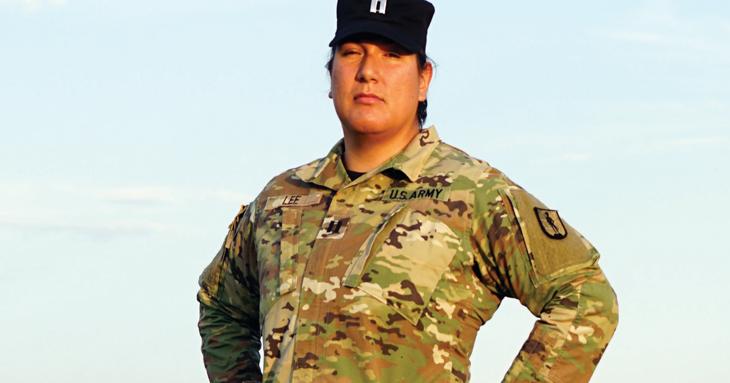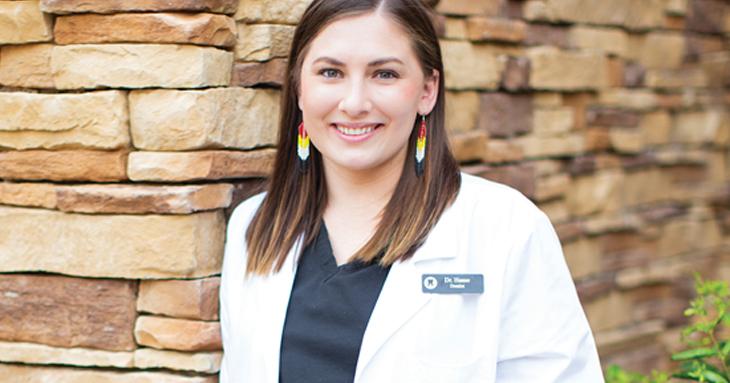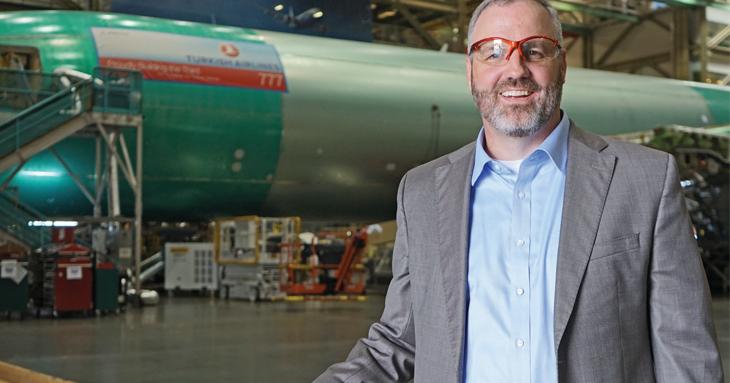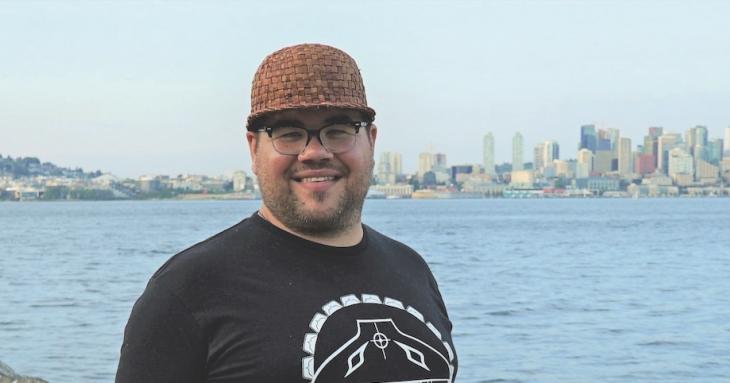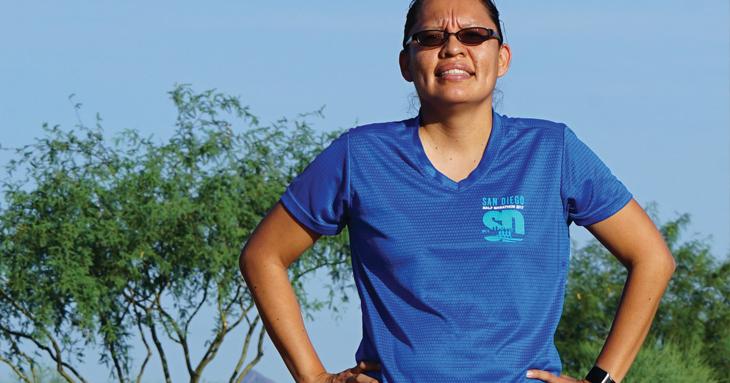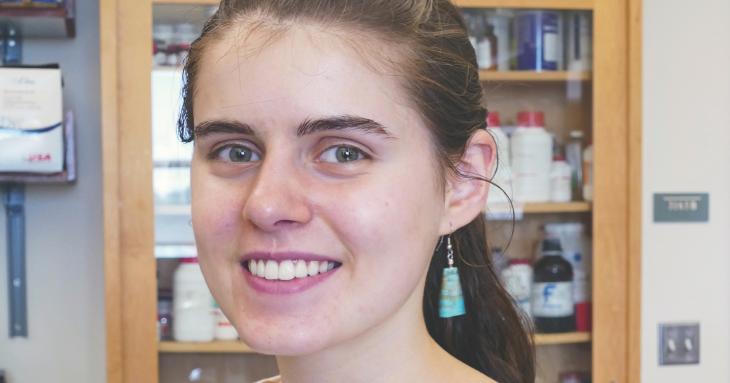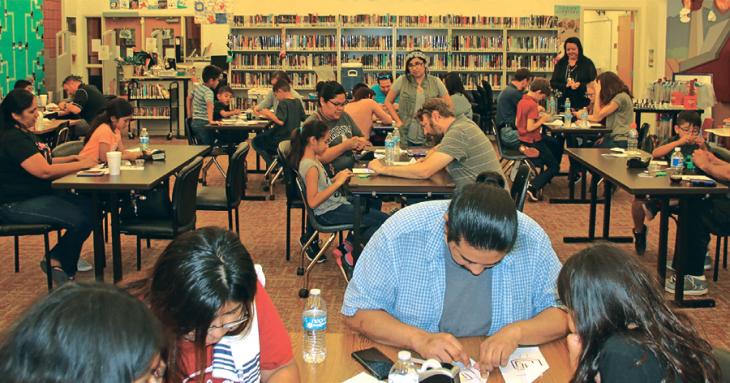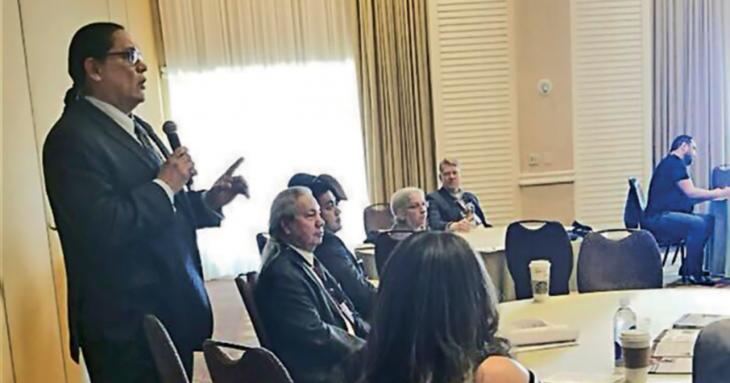-
25 Native STEM Enterprises to Watch
There’s no doubt that despite challenges like chronic economic disparity and a shortage of capital (both start-up and expansion), the number of Native American–owned businesses is growing across the board.
-
Dr. Naomi Lee: 2018 Professional of the Year Awardee / Seneca
When she remembers one of the main reasons she chose to pursue her PhD in chemistry at the University of Rochester in New York, Dr. Naomi Lee can’t help but chuckle. After obtaining an undergraduate degree in biochemistry at the Rochester Institute of Technology, Dr. Lee applied to a number of graduate programs and was accepted to them all. “I chose the University of Rochester because I was afraid to leave home,” she says. “I was afraid to leave for other schools because they were far from the reservation.”
-
Dr. Cristin Haase / Cheyenne River Sioux / Klamath Tribal Health and Family Services / Dentistry
When Cristin Haase was first thinking about a career in dental health, the inequality in care available to American Indians was on her mind — she wanted to be one of the few Indigenous professionals working on closing that gap.
-
Mason Grimshaw / Rosebud Sioux / Massachusetts Institute of Technology / Business Analytics
Mason Grimshaw never envisioned himself walking across the stage at his college graduation. Now, having recently received his bachelor’s degree in business analytics and poised to start a master’s program in the same field, he can’t imagine himself anywhere else. And it all started with a game of cards.
-
Christopher J. Payne: 2018 Executive Excellence Awardee / Cherokee
When he was a high school student in Yakima, Wash., Christopher Payne knew exactly what he wanted to do for a living. His father, an electrical engineer, was an avid reader of architectural magazines, and seeing them around the house piqued Payne’s interest. “I would take the floor plans in the magazines and trace them to make my own grand house,” he recalls. “I wanted to be an architect.”
-
Caleb Dunlap / Ojibwe / Amazon / Technical Recruiter
At 15, Caleb Dunlap thought he wanted to become a doctor, but admits his grades could have been better. His parents divorced and often, he says, there wasn’t a lot of extra money for the family of five kids living in northern Minnesota. “I’m Ojibwe from Nagaajiwanaang, the Fond du Lac Reservation 30 miles from Chi-gami [the name his people call Lake Superior],” he says.
-
Nedlaya Francisco: 2018 Technical Excellence Awardee / Navajo
As a kid growing up on the Navajo Reservation in Shiprock, N.M., Nedlaya Francisco was animated by a single question: How do things work? “We would have broken remote control vehicles or tape players, and my cousins, sisters, and I would take them apart to see their insides and their circuits,” she remembers. “I always wanted to know how things worked but didn’t know what the circuit boards were.”
-
Anna Quinlan / Cherokee / Menlo-Atherton High School
As a 12th-grader at Menlo-Atherton High School in Northern California, Anna Quinlan is a little preoccupied. What senior isn’t? But here’s the thing: It’s all about science — heady stuff like helping people manage Type 1 and 2 diabetes through her very own invention, a low-cost, closed-loop insulin pump. She calls it an “artificial pancreas,” a breakthrough that won her the Grand Award in the 2018 National American Indian Virtual Science and Engineering Fair (NAIVSEF) sponsored by AISES.
-
E-Textile Workshop Inspires Educators: Bringing Computer Science Skills to Rural Communities
Nationwide, there’s a call to broaden participation in computer science — with good reason. The lag in computer science knowledge is especially critical in rural America, where even many blue-collar jobs now require substantial computer skills. Native Americans in rural communities are far less likely than their peers to have access to advanced STEM courses. What’s more, they often lack access to a reliable internet connection outside school.
-
The Tribal Nations Advisory Council
One of two new advisory councils officially launched at the 2017 AISES National Conference, the Tribal Nations Advisory Council (TNAC) has an especially timely mission. (The other new council is CIAC: the Canadian Indigenous Advisory Council.) TNAC’s inaugural meeting at the conference gathered more than 30 tribal leaders to discuss a pressing issue at the intersection of AISES and tribal communities: developing a skilled STEM workforce in Indian Country. TNAC members, who represent tribes from across the country, meet both by phone and in person at conferences.


